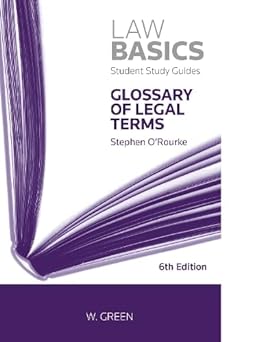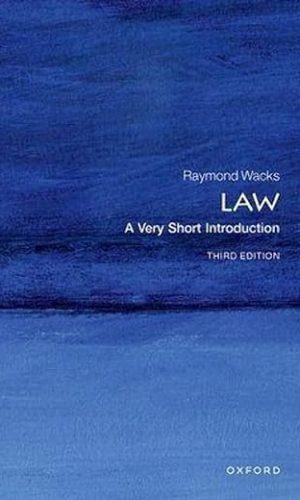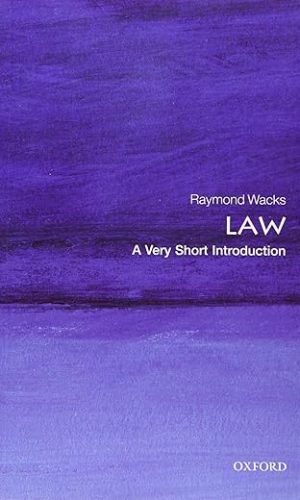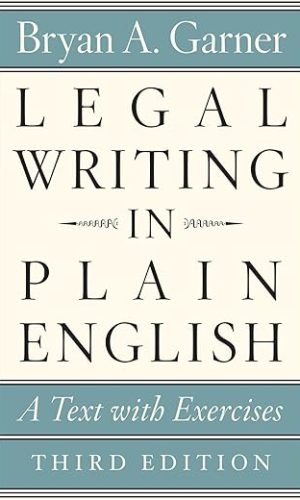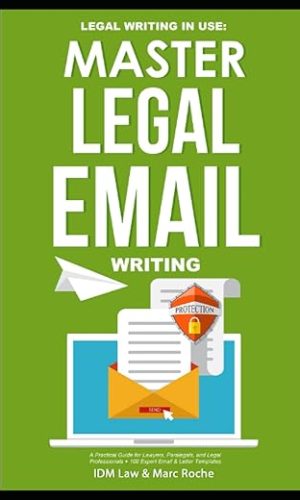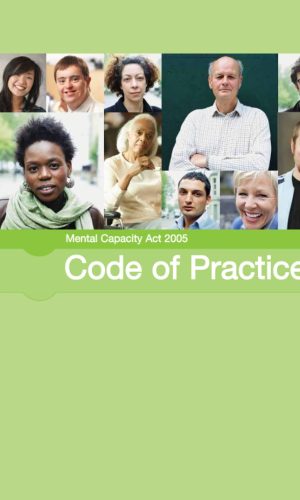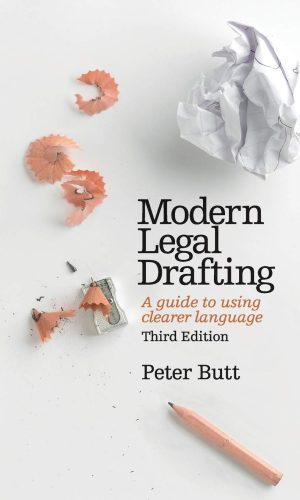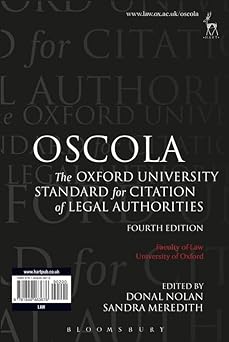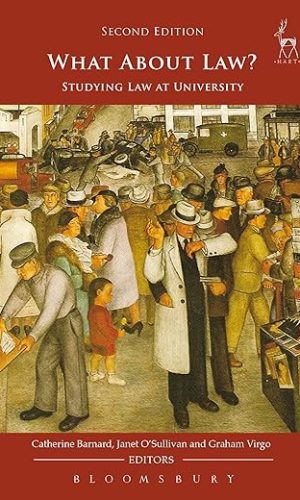Encyclopaedias
-
Constitutional and Administrative Law
Hilaire Barnett’s Constitutional and Administrative Law has consistently provided students with reliable, accessible and comprehensive coverage of the Public Law syllabus. Mapped to the common course outline, the Fifteenth edition equips students with a thorough understanding of the UK constitution’s past, present and future by analysing and illustrating the political and socio-historical contexts that have shaped the major rules and principles of constitutional and administrative law, as well as ongoing constitutional reform.
This edition has been fully updated throughout, including a restructure to Chapters 22 and 26, as well as additional pause and reflect sections in order to aid student understanding of this complex area of the law. The online digital content also includes updates to the Multiple Choice Questions, Instructor Test Bank and Web Links.
Ideal for students studying constitutional and administrative law for the first time, this is an indispensable guide to the challenging concepts and legal rules in public law.
Read more
£32.60£36.10Constitutional and Administrative Law
£32.60£36.10 -
Glossary of Legal Terms Lawbasics
Excellent conditionRead more
£11.90 -
Law: A Very Short Introduction (Very Short Introductions)
bVery Short Introductionsb: Brilliant, Sharp, Inspiring /bLaw is at the heart of every society, protecting rights, imposing duties, and establishing a framework for the conduct of almost all social, political, and economic activity. Despite this, the law often seems a highly technical, perplexing mystery, with its antiquated and often impenetrable jargon, obsolete procedures, and endless stream of judgements and complex legislation.
In this Very Short Introduction Raymond Wacks introduces the major branches of the law, describing what lawyers do, and how courts operate, and considers the philosophy of law and its pursuit of justice, freedom, and equality. Wacks locates the discipline in our contemporary world, considering the pressures of globalization and digitalisation, and the nature of the law in our culture of threatened security and surveillance. In this new edition, the author considers a number of social and political events that have had an impact on the law, including the COVID-19 pandemic, the growth of social media and surveillance, and the increasing threats to the rule of law.
ABOUT THE SERIES: The Very Short Introductions series from Oxford University Press contains hundreds of titles in almost every subject area. These pocket-sized books are the perfect way to get ahead in a new subject quickly. Our expert authors combine facts, analysis, perspective, new ideas, and enthusiasm to make interesting and challenging topics highly readable.
Read more
£7.10£8.50 -
Law: A Very Short Introduction 2/e (Very Short Introductions)
Law is at the heart of every society, protecting rights, imposing duties, and establishing a framework for the conduct of almost all social, political, and economic activity. Despite this, the law often seems a highly technical, perplexing mystery, with its antiquated and often impenetrable jargon, obsolete procedures, and endless stream of complex statutes and legislation.In this Very Short Introduction Raymond Wacks introduces the major branches of the law, describing what lawyers do, and how courts operate, and considers the philosophy of law and its pursuit of justice, freedom, and equality. In this second edition, Wacks locates the discipline in our contemporary world, considering the pressures of globalization and digitalisation and the nature of the law in our culture of threatened security and surveillance.
ABOUT THE SERIES: The Very Short Introductions series from Oxford University Press contains hundreds of titles in almost every subject area. These pocket-sized books are the perfect way to get ahead in a new subject quickly. Our expert authors combine facts, analysis, perspective, new ideas, and enthusiasm to make interesting and challenging topics highly readable.
Read more
£8.50 -
Learning Legal Skills and Reasoning
Language skills, study skills, argument skills and legal knowledge are vital to every law student, professional lawyer and academic. Learning Legal Skills and Reasoning discusses the main sources of English law and explains how to work with legal texts in order to construct credible legal arguments which can be applied in coursework, exams or presentations.
Learning Legal Skills and Reasoning
- Discusses how to find and understand sources of both domestic and European Union Law
- Develops effective disciplined study techniques, including referencing, general reading, writing and oral skills and explains how to make good use of the university print and e-library
- Contains chapters on writing law essays, problem questions and examinations, and on oral skills including presentations and mediation skills
Packed full of practical examples and diagrams across the range of legal skills from language and research skills to mooting and negotiation, this textbook will be invaluable to law students seeking to acquire a range of discreet legal skills in order to use them together to produce competent assessed work.
Read more
£5.00 -
Learning Legal Skills and Reasoning
Language skills, study skills, argument skills and the skills associated with dispute resolution are vital to every law student, professional lawyer and academic. The 5th edition of Learning Legal Skills and Reasoning draws on a range of areas of law to show how these key skills can be learnt and mastered, bridging the gap between substantive legal subjects and the skills required to become a successful law student.
The book is split into four sections:
- Sources of law: Including domestic, European and international law.
- Working with the law: Featuring advice on how to find and understand the most appropriate legislation and cases.
- Applying your research: How to construct a legal argument, answer a problem question and present orally (mooting).
- Skills for solving disputes: From negotiation to mediation and beyond.
Packed full of practical examples and diagrams to illustrate each legal skill, this new edition has been fully updated and now includes a new chapter on drafting. It will be an essential companion for any student wishing to acquire the legal skills necessary to become a successful law student.
Read more
£36.60£40.80Learning Legal Skills and Reasoning
£36.60£40.80 -
Legal Writing in Plain English, Second Edition: A Text with Exercises (Chicago Guides to Writing, Editing, and Publishing)
Admirably clear, concise, down-to-earth, and powerful—all too often, legal writing embodies none of these qualities. Its reputation for obscurity and needless legalese is widespread. Since 2001 Bryan A. Garner’s Legal Writing in Plain English has helped address this problem by providing lawyers, judges, paralegals, law students, and legal scholars with sound advice and practical tools for improving their written work. Now the leading guide to clear writing in the field, this indispensable volume encourages legal writers to challenge conventions and offers valuable insights into the writing process that will appeal to other professionals: how to organize ideas, create and refine prose, and improve editing skills.
Accessible and witty, Legal Writing in Plain English draws on real-life writing samples that Garner has gathered through decades of teaching experience. Trenchant advice covers all types of legal materials, from analytical and persuasive writing to legal drafting, and the book’s principles are reinforced by sets of basic, intermediate, and advanced exercises in each section.
In this new edition, Garner preserves the successful structure of the original while adjusting the content to make it even more classroom-friendly. He includes case examples from the past decade and addresses the widespread use of legal documents in electronic formats. His book remains the standard guide for producing the jargon-free language that clients demand and courts reward.
Read more
£13.30£14.30 -
Legal Writing in Plain English, Third Edition: A Text with Exercises (Chicago Guides to Writing, Editing, and Publishing)
The leading guide to clear writing—and clear thinking—in the legal profession for more than two decades, now newly updated.Admirably clear, concise, down-to-earth, and powerful—all too often, legal writing embodies none of these qualities. Its reputation for obscurity and needless legalese is widespread. Since 2001, Bryan A. Garner’s Legal Writing in Plain English has helped address this problem by providing lawyers, judges, paralegals, law students, and legal scholars with sound advice and practical tools for improving their written work. Now the leading guide to clear writing in the field, this indispensable volume encourages legal writers to challenge conventions and offers valuable insights into the writing process: how to organize ideas, create and refine prose, and improve editing skills.
Accessible and witty, Legal Writing in Plain English draws on real-life writing samples that Garner has gathered through decades of teaching experience. Trenchant advice covers all types of legal materials, from analytical and persuasive writing to legal drafting, and the book’s principles are reinforced by sets of basic, intermediate, and advanced exercises in each section.
For this third edition, Garner has retained the structure of the previous versions, with updates and new material throughout. There are new sections on making your writing vivid and concrete and on using graphics to enhance your argument. The coverage and examples of key topics such as achieving parallelism, avoiding legalese, writing effective openers and summaries, and weaving quotations into your text have also been expanded. And the sample legal documents and exercises have been updated, while newly added checklists provide quick summaries of each section.
Altogether, this new edition will be the most useful yet for legal professionals and students seeking to improve their prose.
Read more
£16.50£17.10 -
Master Legal Email Writing: Legal Writing in Use- A Practical Guide for Lawyers, Paralegals, and Legal Professionals + 100 Expert Email & Letter … Legal Writing, Vocabulary &…
Embrace the Power of Email and Use it to its FULL Potential. “Lawyers possess only one tool to convey their thoughts: language . . . They must love words and use them exactly.”
– Antonin Scalia
Clear communication is the cornerstone of a successful legal career. It is what sets you apart as a professional, and it is what allows you to build trust and credibility with your clients and colleagues.
Effective email communication in the legal profession requires attention to detail, professionalism, and the ability to convey complex information in a concise and easily understandable manner.
Emailing for Law: Mastering Legal Email Writing Like a Pro
A Practical Guide for Lawyers, Paralegals, and Legal Professionals + 100 Expert Email & Letter TemplatesThis comprehensive guide is perfect for new lawyers, solicitors, paralegals, and legal secretaries looking to take their professional communication to the next level.
With 100 downloadable expert email and letter templates, you’ll have all the tools you need to write clear, concise, and effective legal emails. And with a focus on language clarity, this book is also great for non-native English speakers looking to improve their legal writing skills. Don’t let poor email communication hold you back in your legal career – add “Master Legal Email Writing: Legal Writing in Use” to your library today.
Master Legal Email Writing: Legal Writing in Use is the ultimate guide for attorneys, paralegals, and other legal professionals looking to improve their email communication skills. Written by the IDM Law team and business and legal English writing teacher Marc Roche, this book covers all the essential elements of effective email writing, including:
- Crafting clear and concise subject lines
- Organizing and formatting messages
- Using appropriate tone and language
- Taking control of your inbox and using email more effectively and efficiently in your daily life.
- With a focus on professionalism and efficiency, this book teaches you how to communicate effectively with clients, colleagues, and other legal professionals through email.
- You’ll learn how to effectively convey important information, respond to inquiries, and negotiate deals through the written word.
-
Don’t miss out on the opportunity to improve your legal email writing skills and advance your career. “Master Legal Email Writing: Legal Writing in Use” is the perfect resource for anyone looking to excel in the legal profession. Order your copy today and start mastering legal email writing like a pro.
Read more
£9.50 -
Mental Capacity Act 2005 Code of Practice: Code of practice giving guidance for decisions made under the Mental Capacity Act 2005
Mental Capacity Act 2005 Code of Practice Code of practice giving guidance for decisions made under the Mental Capacity Act 2005 Details: The Mental Capacity Act 2005, covering England and Wales, provides a statutory framework for people who lack capacity to make decisions for themselves, or who have capacity and want to make preparations for a time when they may lack capacity in the future. It sets out who can take decisions, in which situations, and how they should go about this. The Act received Royal Assent on 7 April 2005 and will come into force during 2007. The legal framework provided by the Mental Capacity Act 2005 is supported by this Code of Practice (the Code), which provides guidance and information about how the Act works in practice. Section 42 of the Act requires the Lord Chancellor to produce a Code of Practice for the guidance of a range of people with different duties and functions under the Act. Before the Code is prepared, section 43 requires that the Lord Chancellor must have consulted the National Assembly for Wales and such other persons as he considers appropriate. The Code is also subject to the approval of Parliament and must have been placed before both Houses of Parliament for a 40-day period without either House voting against it. This Code of Practice has been produced in accordance with these requirements. The Code has statutory force, which means that certain categories of people have a legal duty to have regard to it when working with or caring for adults who may lack capacity to make decisions for themselves.Read more
£22.80 -
Modern Legal Drafting: A Guide to Using Clearer Language
Modern Legal Drafting provides a comprehensive, authoritative guide to drafting legal documents in effective, plain English. Peter Butt, a leading expert in the field, has fully revised and updated the text for this new edition. It combines a practical focus with the legal principles that underpin the use of plain language in law. This dual practical and academic approach distinguishes it from other books in the field. It includes expanded material on the techniques for achieving a style that is both clear and legally sound. It also includes new material on the challenges and merits of drafting in plain language, and provides many before-and-after examples to help both practising lawyers and students develop their skills. It takes an international approach, drawing upon case law and statutes from England, Australia, New Zealand, the United States, Canada, Ireland, India, Malaysia, Singapore and Hong Kong.Read more
£35.50£38.90 -
OSCOLA: The Oxford University Standard for Citation of Legal Authorities
There are two golden rules for the citation of legal authorities. One is consistency. The other is consideration for the reader. Legal writing is more persuasive when the author refers to legal materials in a clear, consistent and familiar way. The Oxford University Standard for Citation of Legal Authorities (OSCOLA) helps authors to achieve consistency in citing cases, legislation and secondary sources. And it helps authors to make life easier for their readers. OSCOLA is widely used by law schools and legal publishers both in the United Kingdom and abroad. This latest revision of OSCOLA (the fourth edition) is the first to be published in hard copy, and provides more detailed coverage of both primary and secondary legal sources. The editors are Donal Nolan and Sandra Meredith.Read more
£10.40 -
The Insider’s Guide to Legal Skills
Confused by cases? Stuck on statutes? Or just unsure where to start with writing, research or revision? The Insider’s Guide to Legal Skills will show you what you need to succeed, applying skills in their real-world context and helping you get to grips with legal method and thinking.
Making use of problem-based learning and examples throughout, the fully updated second edition of this practical and accessible guide will provide you with a clear guide to skills within the law degree, including online learning. It will show you how to make the most of these skills in assessment and also help you to see their importance to a future legal career.
Designed for students who want a clear overview of what a law degree is all about, the book has been built on the skills curriculum, and is a suitable text for Legal Skills, Methods and Reasoning courses as well as a general introduction to law, or pre-reading for those considering a law degree.
For more information, including Brexit: The Comic Strip, visit https://tldr.legal/resource/brexit-the-comic-strip.html
Read more
£27.50£31.30The Insider’s Guide to Legal Skills
£27.50£31.30 -
What About Law?: Studying Law at University
Most young people considering studying law, or pursuing a legal career, have very little idea of what learning law involves and how universities teach law to their students. The new edition of this book, which proved very popular when first published in 2007, provides a ‘taster’ for the study of law; a short, accessible presentation of law as an academic subject, designed to help 17- and 18-year old students and others decide whether law is the right choice for them as a university subject, or, if they have already made the choice, what to expect when they start their law degree. It helps answer the question ‘what should I study at university?’ and counters the perception that law is a dry, dull subject. “What About Law?” shows how the study of law can be fun, intellectually stimulating, challenging and of direct relevance to students. Using a case study approach, the book introduces prospective law students to the legal system, as well as to legal reasoning, critical thinking and argument. This is a book that should be in the library of every school with a sixth form, every college and every university, and it is one that any student about to embark on the study of law should read before they commence their legal studies. All of the authors have long experience in teaching law at Cambridge and elsewhere and all have also been involved, at various times, in advising prospective law students at open days and admissions conferences. Listed as one of the Six of the best law books that a future law student should read by the Guardian Law Online, 8th August 2012.Read more
£5.00


